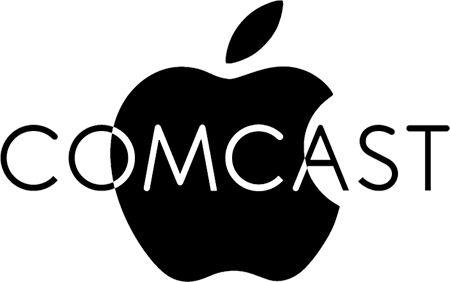Apple, Comcast, and net neutrality

Last night, the Wall Street Journal reported that Apple may be courting Comcast for a streaming TV service that would deliver content from the cloud to an Apple set-top box. The report notes that Apple's (alleged) plan would be for its video content to get priority treatment from Comcast to the customers, and that suggestion has run afoul with net neutrality advocates.
Again, any details about the talks between Apple and Comcast, the largest communications company in the world, are entirely speculative at this point. But if the rumors are real, this is how Apple and Comcast could skirt the argument of net neutrality while still offering content with a higher priority than, say, your standard access to the web:
First, Apple's service would be separate from the rest of the internet once it reaches what is called the "last mile." The last mile is the term cable companies use for the path your service takes from the the company's facilities to your home. If the WSJ report is accurate, Apple wishes for its streaming content to be carried independently of the public internet.
A cable line isn't like a water pipe -- where a single stream is pushed through at once -- but more like a multi-lane highway. In this analogy, you might have a lane (or several) for public internet, a lane for cable phone service, and a lane for video on-demand. These are considered separate services, and as such they don't violate what most people consider to be neutral delivery of the internet.
Comcast would, in theory, handle Apple's content the same way, sending it separately from public internet, cable TV, and phone services. This is different from the recent deal between Netflix and Comcast -- where Netflix agreed to pay Verizon to ensure congestion doesn't hamper Netflix content on its way to you -- because Apple's content wouldn't be actively competing with your public internet service.
Of course, the end result is still the same: Apple's content is given its own lane on the broadband highway and the service is, hopefully, as perfect as it can be thanks to a deal between the two companies.
So should net neutrality advocates be worried?
It's hard to say. Apple is in a position to score a deal like this thanks to how massive and successful the company is, and other streaming services -- left jostling for position on the public internet -- would be at a disadvantage. However, unless Comcast took measures that hampered those competitors, the net neutrality argument doesn't quite fit.

